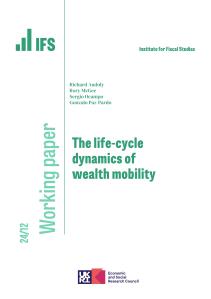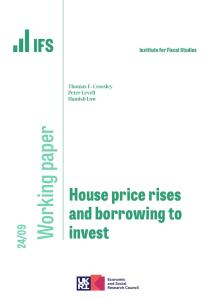Fiscal Studies Special Issue on a Wealth Tax: Time for Another Look?
In this paper, we review the existing empirical evidence on how individuals respond to the incentives created by a net wealth tax. Variation in the overall magnitude of behavioural responses is substantial: estimates of the elasticity of taxable wealth vary by a factor of 800. We explore three key reasons for this variation: tax design, context and methodology. We then discuss what is known about the importance of individual margins of response and how these interact with policy choices. Finally, we use our analysis to systematically narrow down and reconcile the range of elasticity estimates. We argue that a well-designed wealth tax would reduce the tax base by 7–17 per cent if levied at a tax rate of 1 per cent.
Authors

Research Fellow University of Warwick
Arun is a Research Fellow at IFS, an Associate Professor of Economics at the University of Warwick and a Commissioner at the Wealth Tax Commission.

Hannah Tarrant
Journal article details
- DOI
- 10.1111/1475-5890.12283
- Publisher
- Wiley
- Issue
- Volume 42, Issue 3-4, October 2021, pages 509-537
Suggested citation
Advani, A and Tarrant, H. (2021). 'Behavioural responses to a wealth tax' Fiscal Studies Special Issue on a Wealth Tax: Time for Another Look?, 42(3-4/2021), pp.509–537.
More from IFS
Understand this issue

Raising revenue from closing inheritance tax loopholes
18 April 2024

Spring Budget 2024: What you need to know
7 March 2024

Spring Budget 2024: the Chancellor’s options
Policy analysis

Reforming the taxation of non-doms: policy options and uncertainties
4 March 2024

Spring Budget 2024
6 March 2024

Oil and gas make Scotland’s underlying public finances particularly volatile and uncertain
27 March 2024
Academic research

The life-cycle dynamics of wealth mobility
10 April 2024

House price rises and borrowing to invest
27 March 2024

Intertemporal income shifting and the taxation of business owner-managers
24 January 2024